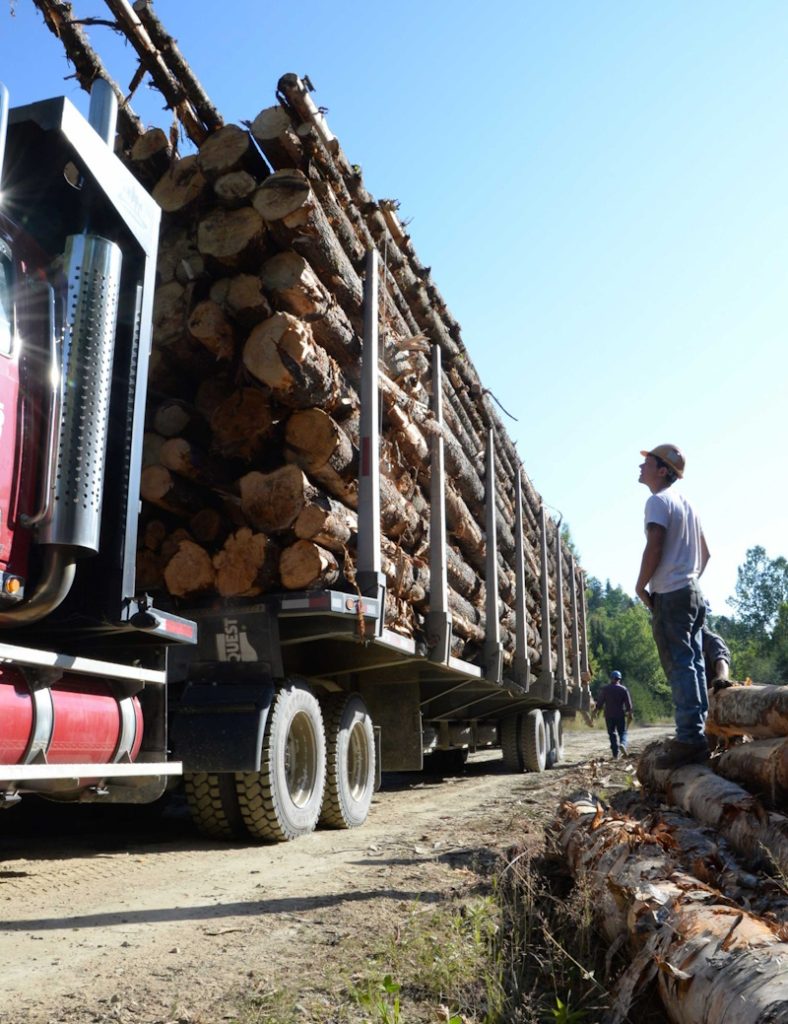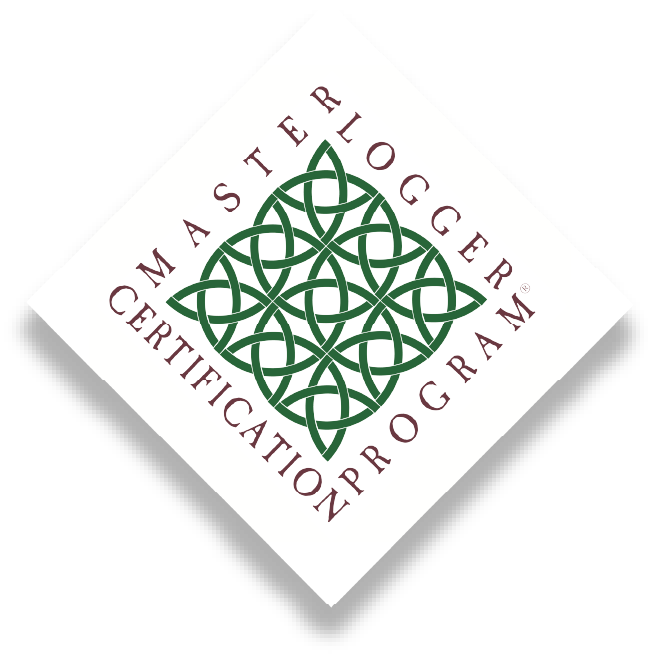Working with a Master Logger
Why work with a Master Logger Certified company on your woodlot?
Working with a Master Logger Certified company grants you peace of mind that they will do the job to a high standard of professionalism, forest health, and safety. All Master Logger Certified companies are verified by an independent third-party to be proficient in the following areas:
Professional harvest planning
Master Loggers must have written contracts, maps, and a harvest plan. These are developed with landowner objectives in mind.
Protecting water and soil resources
Master Loggers use techniques to ensure soil and water impacts are minimized.
Understanding the role of ecosystems and wildlife
Master Loggers will work with you on a plan that meets your objectives, including the protection of wildlife habitats.

Working safely in a professional manner
Master Loggers perform to a high standard of safety and professionalism. This includes operating in a legal and ethical manner.
Understanding harvest aesthetics
Master Loggers work to minimize visual impact.
Shot at a site in Damariscotta, Maine, in the fall and early winter of 2018, the video titled, “Working with a Professional Master Logger: The Landowners Perspective,” shows the before, during, and after phases of a harvest and the careful planning by the Master Logger Certified company, CTL Land Management Services of Washington, ME, to ensure the aesthetics and forest health goals of the landowner are met in addition to the financial objectives.
This educational video highlights the perspective of the landowner and the steps necessary to balance the needs of the landowner while working in collaboration with the contractor to conduct proper forest management.
CTL Land Management Services is Master Logger Certified and a member of the PLC. Many thanks to CTL and everyone else who made this project a success!
